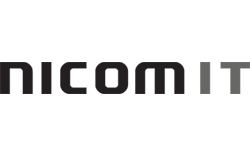One of the great things about having a technology column is that you get to play with cool toys. The latest one to cross my desk is an ultra-slim DVD reader/burner for people on the go.
A few months back I wrote an article about keeping computer networks safe and secure. Now it’s time to write about desktop computers. That shiny new piece of gear you just got for Christmas will be a source of frustration if you come to depend on it and it fails you. So here are some things you should do to keep your system running smoothly.
Some advice is good even if it’s not necessarily precise. Just the common sense behind it is enough to be worthwhile. Here is one example: A while back, an article on email management stated that if you opened an email message and decided you could deal with it in two minutes or less, then do so immediately and get it out of your Inbox. I can’t remember where I got that from but I’ve been using it ever since and it’s helped me a great deal in managing the size of my Inbox.
What happens behind the scenes when you enter your credit card information online? Is it safe? For answers, I turned to the experts at Skipjack Financial Services, a Cincinnati-based company whose Canadian office is in Halifax. I know them well because my employees at Nicom IT Solutions often use Skipjack when they create web sites that have an online payment option.
We now have this huge computer network called the Internet and we usually think of it in terms of Web pages, but it has potential for a lot more than just providing online marketing material for us to look at. Organizations with offices across multiple locations can make use of high-speed Internet connections and replicated databases to transfer data from one place to the other, and keep one another up-to-date on what’s going on.
